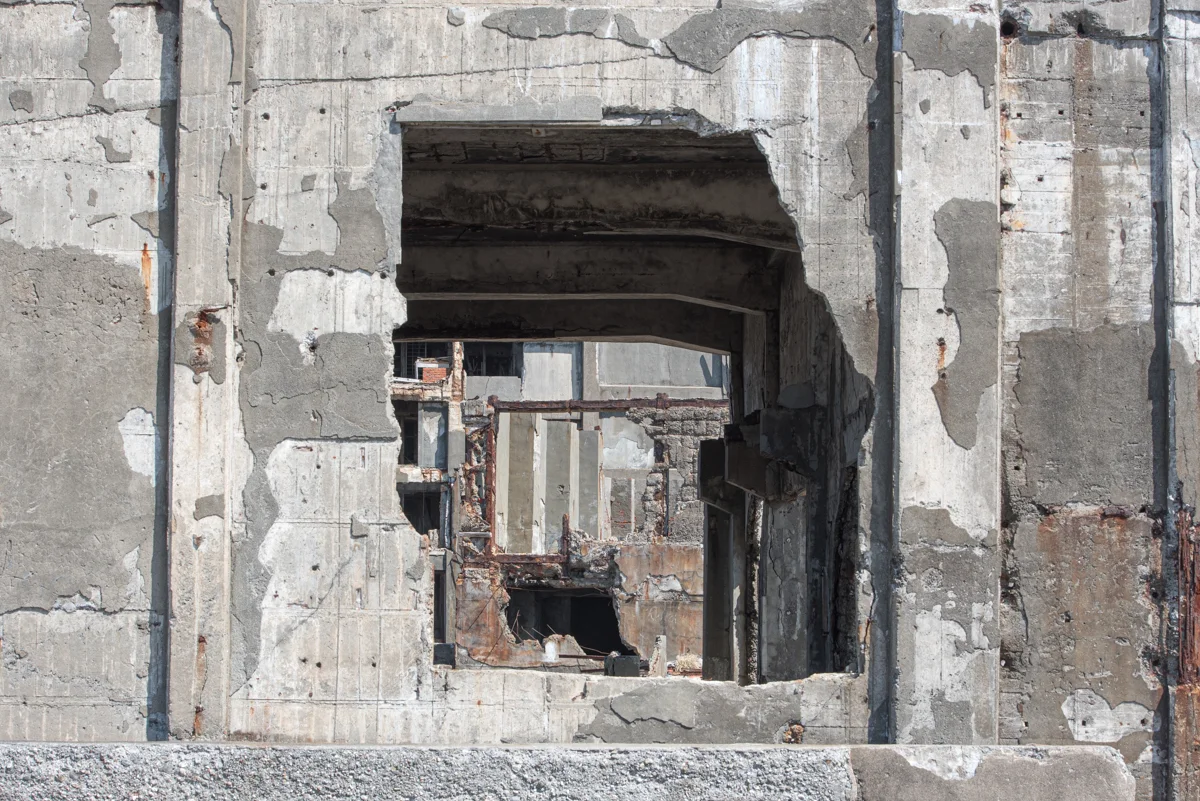九州の独り旅
Nagasaki & Battleship Island
March, 2018
After recovering from a hard-drive close call, continuing to suffer the slings and arrows of a job-hunt in Tokyo, and procrastinating more than a little, I’m finally back to log some more of my 2018 trip around Kyushu. What I expected to be a 3-part series will now be 4, because it’s my blog and who’s going to stop me?
Nagasaki was the next big stop after Fukuoka. My first day there was rainy and overcast, which made the city no less beautiful, but cast a pale that felt strangely fitting for my first day’s activities. After checking into my room in the hostel, which had a lovely view over the Nakashima River, I walked a ways up the valley to visit the atomic bombing memorials and museum. The famous 10-meter-tall Peace Statue features some interesting symbolism: right hand points toward the threat of nuclear weapons, the left toward eternal peace, the right leg folded in meditation, and the left planted firmly to the earth, ready to stand to rescue it’s people.
Two other famous symbols of the city: Meganebashi, or “Spectacles Bridge,” named for the reflection it casts on the river, and the less explicably named “Turkish Rice,” which is Nagaski’s answer to the Garbage Plate: spaghetti and meat sauce, hamburger, a pork cutlet with demi-glace, rice, and salad (100 yen coin for scale—roughly the same size as a quarter).
The next day was gorgeous and sunny. I woke up early and walked to the bay to take a tour boat over to Hashima, otherwise known as Battleship Island for its distinct profile. Here it is through the smudgy boat window:
Hashima is worth a Wikipedia search. It used to be a dense and prosperous coal mining city, with its own school and supermarket and even a bowling alley and movie theater. Once the coal was depleted, everyone moved back to the mainland, and the island city fell into disrepair until fairly recently when conservation efforts began and parts of the grounds opened for tours. It’s haunting and beautiful—like visiting the ruins of an ancient city (if ancient means the 1970s, which I’m sure it does to some people reading this).
Returning to the bay, we were greeted by the docking of the Quantum of the Seas, an absolutely monstrous cruise ship.
I spent the rest of my day hiking from one side of the bay to the other. I first went up the south mountains where there’s a European architectural influence (Nagaski being one of the few ports not closed to foreign trade prior to the 1800s), including the Glover Garden, built by a Scottish merchant.
There were also a few views like this:
From there, I hiked down through China Town. I arrived two days late for the famous Lantern Festival, but at least got to watch them take some of it down.
Then it was across the bay and up the mountains on the other side, which I was told has a world’s-best 360° sunset and night view.
Yeah… they sure weren’t lying about the view:
Next up, a post a fraction of the size of this monster—featuring the hot springs towns of Unzen and Kurokawa.







































